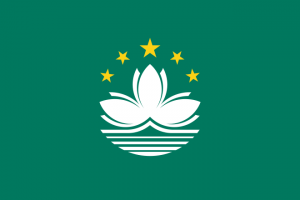 Thanks to an open economy on China’s doorstep that’s also heavily dependent on gambling and tourism from the mainland and beyond, Macau’s economy has remained strong – meaning there are job opportunities for both Macau returnees and foreign expatriates alike.
Thanks to an open economy on China’s doorstep that’s also heavily dependent on gambling and tourism from the mainland and beyond, Macau’s economy has remained strong – meaning there are job opportunities for both Macau returnees and foreign expatriates alike.
The Macau Diaspora and Macau Returnees
Macau has the distinction of being both the first and the last European colony in China after being settled by the Portuguese in the 16th century and then being handed back to China on December 20, 1999. As with Hong Kong, Macau will be governed under the “one country, two systems” philosophy for at least 50 years after the 1999 transfer of power back to China.
Today, Macau is over 95% Chinese (either locally or Hong Kong born or increasingly from Mainland China) with the remaining population being Portuguese or of mixed-Chinese-Portuguese ancestry or they are guest workers from elsewhere in the world such as the Philippines. Of the Macau born Portuguese people (including those of mixed ancestry), several thousand remain in Macau with another several thousand more being in Portugal. Larger concentrations of Macanese or those of Macanese descent can also be found in Australia, Brazil, Canada, Peru and the United States with many being fluent in both Portuguese and Cantonese.
The Macau Recruitment Market
Thanks to the opening of the locally controlled casino gaming industry in 2001, Macau has surpassed Las Vegas in terms of gaming revenue as massive amounts of foreign investment in casinos and related tourism facilities poured in while the government made efforts to improve the territory’s infrastructure to handle an influx of tourists from the Mainland. Hence, most job opportunities in the Macau recruitment market would be in the gaming and tourism sectors as much of the territory’s manufacturing base has already moved to the Mainland.
However, the Macau government is trying to diversify the territory’s economy away from its heavy reliance on casino gaming revenues and tourism. Hence, it’s worth noting that Macau is also a growing offshore financial center and a tax haven with no foreign exchange controls – meaning there are also job opportunities for finance and banking professionals in Macau.
Working in Macau
Generally speaking, anyone who does not posses a right of abode or right to land in Macau will require an entry visa or a permit to visit, work, establish a business or take up residence in Macau. A foreign expatriate coming to work in Macau should have their employer arrange a Macau work permit (“Blue Card”) through the Human Resources Office of Macau before they arrive and this process can take up to six weeks or longer. For further information about Macau visas and Macau work permits, visit the website of the Human Resources Office of Macau, the Portal do Governo da RAE de Macau or the Immigration Department of the Macao Special Administrative Region page on the website of the Forcas de Seguranca de Macau or Public Security Forces of Macau.
As for taxes, Macau income taxes are levied at progressive rates ranging from 7% to 12% on annual taxable income that exceeds MOP 120,000. Foreign expatriates working for a Macau entity who do not possess a valid identity card or work permit issued by the Macao government will be taxed either at a rate of 5% or at an amount computed in accordance with Macau’s progressive tax rates, whichever is higher. For further information about Macau tax rates or Macau taxes in general, visit taxrates.cc, KPMG’s Taxation of International Executives page for Macau or the website of The Taxation Research Centre of Macao.
Macau Recruitment and Jobs Resources
For additional Macau recruitment resources, check out the Macau tagged posts from our Brain Drain to Brain Gain blog as well as our Macau jobs page.
